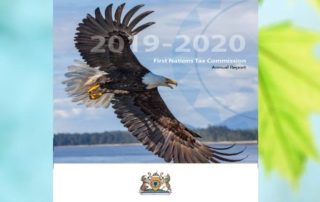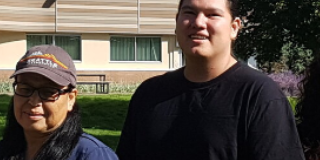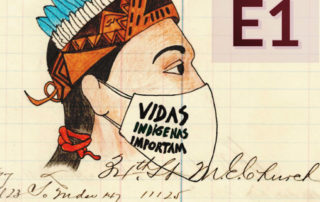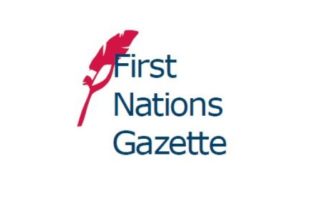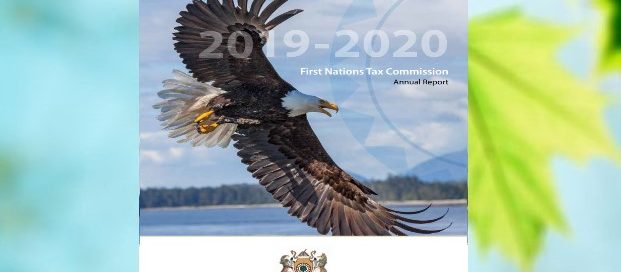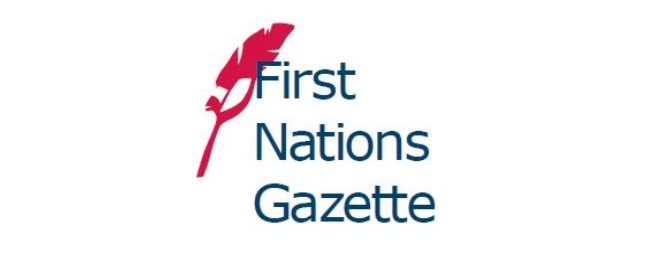-
FNTC: NEWS
Proposed Procedures Respecting the Approval of First Nation Local Revenue Laws, 2020
Procedures are established by the First Nations Tax Commission (Commission) to provide transparent and efficient processes for the approval of local revenue laws by the Commission to assist the Commission in fulfilling its statutory obligations under the First Nations Fiscal Management Act (the “Act”).
Under the Act, the Commission reviews and approves laws. Subsection 35(2) of the Act provides that the Commission may establish procedures respecting the “submission for approval” of local revenue laws and “approval of those laws.” In June 2009, the Commission approved the Procedures Respecting the Approval of First Nation Local Revenue Laws (Approval Procedures). They were further amended in September 2016.
As a matter of policy, the Commission seeks public input prior to introducing or significantly amending its Procedures. This input is critical in developing procedures that are efficient and acceptable for participating First Nations and their taxpayers.
Earlier this year, a review of the Approval Procedures was carried out to determine ways to improve clarity and remove unnecessary administrative requirements. As a result of this review, the Commission is proposing to replace the existing Approval Procedures.
Changes to the Approval Procedures include how the Commission may postpone law review where a law is non-compliant with the Act. Where a law review is postponed, a First Nation may amend an original law or replace it with a new law, and that the Commission may proceed with review and approval consideration of the amending law and original law, or a new law. The proposed Approval Procedures remove the requirement for the Commission to:
• notify the First Nation of the necessary amendments;
• advise the First Nation of whether identified amendments are not significant in the context of subsections 6(2) and 8(2) of the Act; and
• set a time frame for the making and submission of an amending law.
Additional changes include section 1.1 which is updated to clarify that the Commission will review “accompanying information required by section 8 of the Act” in its review and consideration of approval of the submitted law, and section 5, which would separate the provisions dealing with compliance of sections 6 and 8 of the Act.
The Commission is seeking public input in respect of these proposed Approval Procedures. If you wish to learn more about the proposed changes, please contact the FNTC at mail@fntc.ca or by telephone toll free at 1 (855) 682-3682. Electronic versions of the proposed Approval Procedures (changes are highlighted in red) are available at www.fntc.ca or by clicking the link below:
Proposed Procedures Respecting the Approval of First Nation Local Revenue Laws, 2020
Please direct your written comments on or before November 30, 2020 to:
First Nations Tax Commission
321-345 Chief Alex Thomas Way
Kamloops BC
V2H 1H1
Telephone: 1 (855) 682-3682
Fax: (250) 828-9858
Email: mail@fntc.ca
Chief Commissioner Speaks to Radio New Zealand
Chief Commissioner Jules discusses the importance of First Nation jurisdiction with Radio New Zealand Host, Julian Wilcox.
The First Nations Tax Commission Releases its 2019/20 Annual Report
The Annual Report provides an update to First Nations, taxpayers and the federal government on the FNTC’s progress in achieving its vision and highlighting how our work improves First Nation communities and supports expanding First Nation tax jurisdiction.
Download the Annual report.
Student Spotlight: Sue Ellis, Akisqnuk First Nation
Sue Ellis, Finance Supervisor, Akisqnuk First Nation.
Why did you sign up to take the Certificate in First Nation Taxation Administration Program?
The role of tax administrator fell into my lap after our Sr. Finance Officer left. I didn’t know what I was doing the first year and am so thankful for all the help that I received from Nicole Casimel at TAS, Marie Potvin and Tracey Simon at FNTC. I could NOT have done it without these ladies’ help. So for others out there that are thrown into the role, there is so much help available from the First Nations institutions…USE IT! That’s what they are there for.
What are your thoughts on the program and your biggest takeaway?
- There is help out there! Take advantage of all the expertise to better your First Nation.
- The first class laid out the foundation of why First Nations are where they are, which is very eye opening from an outsider’s perspective.
- There are many opportunities on the horizon for First Nations to exert their jurisdictions and start collecting more of their own revenues. There were many laws that we worked through and now I have my own templates, briefing notes, and notices already done for when those opportunities arise in my community. Thanks for preparing us in advance!
- Share information with other First Nation communities and stop trying to re-invent the wheel. It’s great to hear about where other communities are from starting out with no laws, to those that have numerous ones already in place and are having successes.
- The Tulo Centre has great instructors that are super knowledgeable and passionate about the subject. Also, they were very entertaining, down to earth and understanding.
How will your First Nation benefit from you having this certificate?
If there are new opportunities that our First Nation pursues, I will have the confidence and knowledge to address the taxation perspectives. I will also have more confidence to speak up about future developments, ask questions and disagree with the project if I don’t think that it is financially feasible.
Any final thoughts?
If possible, every First Nation should have one of their staff attend this course as it teaches them not only about the taxation opportunities, it allows them to meet people from other First Nations to share ideas and knowledge, which is truly valuable. It also shows them what is available for help and maybe it will get them thinking about ways they can help their First Nation with new economic opportunities and how important it is to plan for the future. Thank you so much!
Sue Ellis (far left) shown above with her classmates in front of Thompson Rivers University.
Podcast: Indigenous Experience & Pandemics (Pt 1)
This first podcast episode introduces the history of pandemics and their impact on First Nation lives, communities, jurisdictions, and trajectories. First Nations Tax Commission (FNTC) Chief Commissioner C.T. Manny Jules discusses this history and his vision for change.
Chief Commissioner Jules has dedicated over 40 years of his life to public service in support of First Nations. He is a member of Tkemlups te Secwepemc and served as Chief for over 16 years. He was the driving force behind the First Nations Fiscal Management Act, passed by Parliament in 2005, creating the First Nations Tax Commission, where he currently serves as Chief Commissioner.
Click here to listen on Spotify
Click here to listen on Apple Podcasts
This episode was recorded on June 3, 2020.
SHOW NOTES:
First Nations Tax Commission: www.fntc.ca
The mission of the FNTC is to help First Nation governments build and maintain fair and efficient property tax regimes and to ensure those First Nation communities, and their taxpayers alike, receive the maximum benefit from those systems.The FNTC is also about creating the legal, administrative and infrastructural framework necessary for markets to work on First Nation lands, creating a competitive First Nation investment climate, and using economic growth as the catalyst for greater First Nation self-reliance.
Tulo Centre of Indigenous Economics: www.tulo.ca
The Tulo Centre is a Canadian charitable organization dedicated to renewing Indigenous economics by providing applied programs to enhance the capacity of Indigenous communities.
Book Recommendation:
The Great Influenza: The Story of the Deadliest Pandemic in History. Written by John M. Barry:
____
Intro and outro song: John Jules
Cover artwork: Chief Commissioner Jules
First Nations Gazette Launches Redesigned Website
The First Nations Gazette is pleased to announce the launch of its redesigned website. Today marks the twenty-third anniversary of the First Nations Gazette (FNG). First Nation governments have been pushing forward and gaining access to more jurisdictions and powers. As their jurisdictions and powers grow, so do their responsibilities, including transparency for their members and providing taxpayers with access to the laws and by-laws that affect them. The FNG has firmly established itself as the leading source for First Nation legislation in Canada.
FNG’s success and longevity is, in part, due to its recognition that First Nations want to ensure there is a reliable and easily accessible source of legal information available. This has led to many of FNG’s technical innovations over the years. The redesign announced today includes a fresh and streamlined look with an enhanced search system to help visitors quickly and easily find the information they need.
“We are committed to innovate and evolve along with First Nations who are pushing forward, expanding jurisdictions. The FNG is a fundamental and useful tool that is a part of this process, supporting the governance of First Nation laws.” said Chief Commissioner C.T. (Manny) Jules.
The new searchable database is built on Lexum’s powerful Decisia and Qweri platforms which enables improved speed and provides a new and easier to use search interface that includes full-text searching and a new and flexible advanced search with user-centric features such as auto-completion of queries and highlighting of search terms. A new mailing list and RSS and JSON feeds will allow users to be notified when new notices, laws, by-laws, codes, and other enactments are published.
The FNG is a free online service operated by the First Nations Tax Commission. It provides public access to First Nation notices, First Nation laws and by-laws, land codes and other First Nation enactments. More than 300 First Nations currently use the FNG to post laws, by-laws, and notices. With a searchable database that currently houses more than 8,000 items, the FNG has been the legal voice of First Nations in Canada since its official launch on June 21, 1997.
Visit the website: www.fng.ca
Tk’emlúps te Secwépemc, British Columbia – June 21, 2020
-
CLEARING THE PATH: NEWS & SUCCESS STORIES
Proposed Procedures Respecting the Approval of First Nation Local Revenue Laws, 2020
Procedures are established by the First Nations Tax Commission (Commission) to provide transparent and efficient processes for the approval of local revenue laws by the Commission to assist the Commission in fulfilling its statutory obligations under the First Nations Fiscal Management Act (the “Act”).
Under the Act, the Commission reviews and approves laws. Subsection 35(2) of the Act provides that the Commission may establish procedures respecting the “submission for approval” of local revenue laws and “approval of those laws.” In June 2009, the Commission approved the Procedures Respecting the Approval of First Nation Local Revenue Laws (Approval Procedures). They were further amended in September 2016.
As a matter of policy, the Commission seeks public input prior to introducing or significantly amending its Procedures. This input is critical in developing procedures that are efficient and acceptable for participating First Nations and their taxpayers.
Earlier this year, a review of the Approval Procedures was carried out to determine ways to improve clarity and remove unnecessary administrative requirements. As a result of this review, the Commission is proposing to replace the existing Approval Procedures.
Changes to the Approval Procedures include how the Commission may postpone law review where a law is non-compliant with the Act. Where a law review is postponed, a First Nation may amend an original law or replace it with a new law, and that the Commission may proceed with review and approval consideration of the amending law and original law, or a new law. The proposed Approval Procedures remove the requirement for the Commission to:
• notify the First Nation of the necessary amendments;
• advise the First Nation of whether identified amendments are not significant in the context of subsections 6(2) and 8(2) of the Act; and
• set a time frame for the making and submission of an amending law.
Additional changes include section 1.1 which is updated to clarify that the Commission will review “accompanying information required by section 8 of the Act” in its review and consideration of approval of the submitted law, and section 5, which would separate the provisions dealing with compliance of sections 6 and 8 of the Act.
The Commission is seeking public input in respect of these proposed Approval Procedures. If you wish to learn more about the proposed changes, please contact the FNTC at mail@fntc.ca or by telephone toll free at 1 (855) 682-3682. Electronic versions of the proposed Approval Procedures (changes are highlighted in red) are available at www.fntc.ca or by clicking the link below:
Proposed Procedures Respecting the Approval of First Nation Local Revenue Laws, 2020
Please direct your written comments on or before November 30, 2020 to:
First Nations Tax Commission
321-345 Chief Alex Thomas Way
Kamloops BC
V2H 1H1
Telephone: 1 (855) 682-3682
Fax: (250) 828-9858
Email: mail@fntc.ca
Chief Commissioner Speaks to Radio New Zealand
Chief Commissioner Jules discusses the importance of First Nation jurisdiction with Radio New Zealand Host, Julian Wilcox.
The First Nations Tax Commission Releases its 2019/20 Annual Report
The Annual Report provides an update to First Nations, taxpayers and the federal government on the FNTC’s progress in achieving its vision and highlighting how our work improves First Nation communities and supports expanding First Nation tax jurisdiction.
Download the Annual report.
Student Spotlight: Sue Ellis, Akisqnuk First Nation
Sue Ellis, Finance Supervisor, Akisqnuk First Nation.
Why did you sign up to take the Certificate in First Nation Taxation Administration Program?
The role of tax administrator fell into my lap after our Sr. Finance Officer left. I didn’t know what I was doing the first year and am so thankful for all the help that I received from Nicole Casimel at TAS, Marie Potvin and Tracey Simon at FNTC. I could NOT have done it without these ladies’ help. So for others out there that are thrown into the role, there is so much help available from the First Nations institutions…USE IT! That’s what they are there for.
What are your thoughts on the program and your biggest takeaway?
- There is help out there! Take advantage of all the expertise to better your First Nation.
- The first class laid out the foundation of why First Nations are where they are, which is very eye opening from an outsider’s perspective.
- There are many opportunities on the horizon for First Nations to exert their jurisdictions and start collecting more of their own revenues. There were many laws that we worked through and now I have my own templates, briefing notes, and notices already done for when those opportunities arise in my community. Thanks for preparing us in advance!
- Share information with other First Nation communities and stop trying to re-invent the wheel. It’s great to hear about where other communities are from starting out with no laws, to those that have numerous ones already in place and are having successes.
- The Tulo Centre has great instructors that are super knowledgeable and passionate about the subject. Also, they were very entertaining, down to earth and understanding.
How will your First Nation benefit from you having this certificate?
If there are new opportunities that our First Nation pursues, I will have the confidence and knowledge to address the taxation perspectives. I will also have more confidence to speak up about future developments, ask questions and disagree with the project if I don’t think that it is financially feasible.
Any final thoughts?
If possible, every First Nation should have one of their staff attend this course as it teaches them not only about the taxation opportunities, it allows them to meet people from other First Nations to share ideas and knowledge, which is truly valuable. It also shows them what is available for help and maybe it will get them thinking about ways they can help their First Nation with new economic opportunities and how important it is to plan for the future. Thank you so much!
Sue Ellis (far left) shown above with her classmates in front of Thompson Rivers University.
Podcast: Indigenous Experience & Pandemics (Pt 1)
This first podcast episode introduces the history of pandemics and their impact on First Nation lives, communities, jurisdictions, and trajectories. First Nations Tax Commission (FNTC) Chief Commissioner C.T. Manny Jules discusses this history and his vision for change.
Chief Commissioner Jules has dedicated over 40 years of his life to public service in support of First Nations. He is a member of Tkemlups te Secwepemc and served as Chief for over 16 years. He was the driving force behind the First Nations Fiscal Management Act, passed by Parliament in 2005, creating the First Nations Tax Commission, where he currently serves as Chief Commissioner.
Click here to listen on Spotify
Click here to listen on Apple Podcasts
This episode was recorded on June 3, 2020.
SHOW NOTES:
First Nations Tax Commission: www.fntc.ca
The mission of the FNTC is to help First Nation governments build and maintain fair and efficient property tax regimes and to ensure those First Nation communities, and their taxpayers alike, receive the maximum benefit from those systems.The FNTC is also about creating the legal, administrative and infrastructural framework necessary for markets to work on First Nation lands, creating a competitive First Nation investment climate, and using economic growth as the catalyst for greater First Nation self-reliance.
Tulo Centre of Indigenous Economics: www.tulo.ca
The Tulo Centre is a Canadian charitable organization dedicated to renewing Indigenous economics by providing applied programs to enhance the capacity of Indigenous communities.
Book Recommendation:
The Great Influenza: The Story of the Deadliest Pandemic in History. Written by John M. Barry:
____
Intro and outro song: John Jules
Cover artwork: Chief Commissioner Jules
First Nations Gazette Launches Redesigned Website
The First Nations Gazette is pleased to announce the launch of its redesigned website. Today marks the twenty-third anniversary of the First Nations Gazette (FNG). First Nation governments have been pushing forward and gaining access to more jurisdictions and powers. As their jurisdictions and powers grow, so do their responsibilities, including transparency for their members and providing taxpayers with access to the laws and by-laws that affect them. The FNG has firmly established itself as the leading source for First Nation legislation in Canada.
FNG’s success and longevity is, in part, due to its recognition that First Nations want to ensure there is a reliable and easily accessible source of legal information available. This has led to many of FNG’s technical innovations over the years. The redesign announced today includes a fresh and streamlined look with an enhanced search system to help visitors quickly and easily find the information they need.
“We are committed to innovate and evolve along with First Nations who are pushing forward, expanding jurisdictions. The FNG is a fundamental and useful tool that is a part of this process, supporting the governance of First Nation laws.” said Chief Commissioner C.T. (Manny) Jules.
The new searchable database is built on Lexum’s powerful Decisia and Qweri platforms which enables improved speed and provides a new and easier to use search interface that includes full-text searching and a new and flexible advanced search with user-centric features such as auto-completion of queries and highlighting of search terms. A new mailing list and RSS and JSON feeds will allow users to be notified when new notices, laws, by-laws, codes, and other enactments are published.
The FNG is a free online service operated by the First Nations Tax Commission. It provides public access to First Nation notices, First Nation laws and by-laws, land codes and other First Nation enactments. More than 300 First Nations currently use the FNG to post laws, by-laws, and notices. With a searchable database that currently houses more than 8,000 items, the FNG has been the legal voice of First Nations in Canada since its official launch on June 21, 1997.
Visit the website: www.fng.ca
Tk’emlúps te Secwépemc, British Columbia – June 21, 2020


